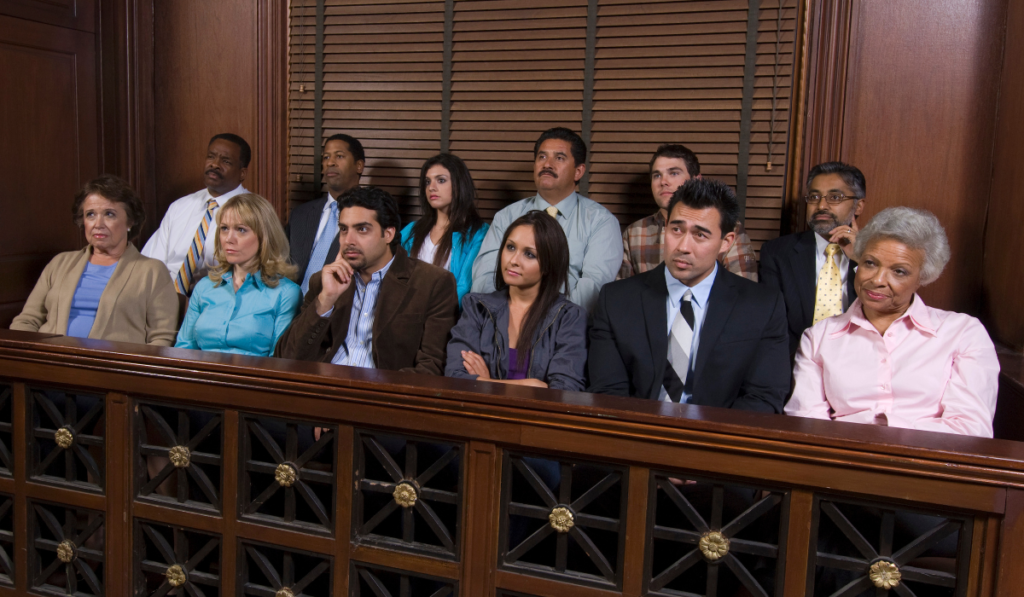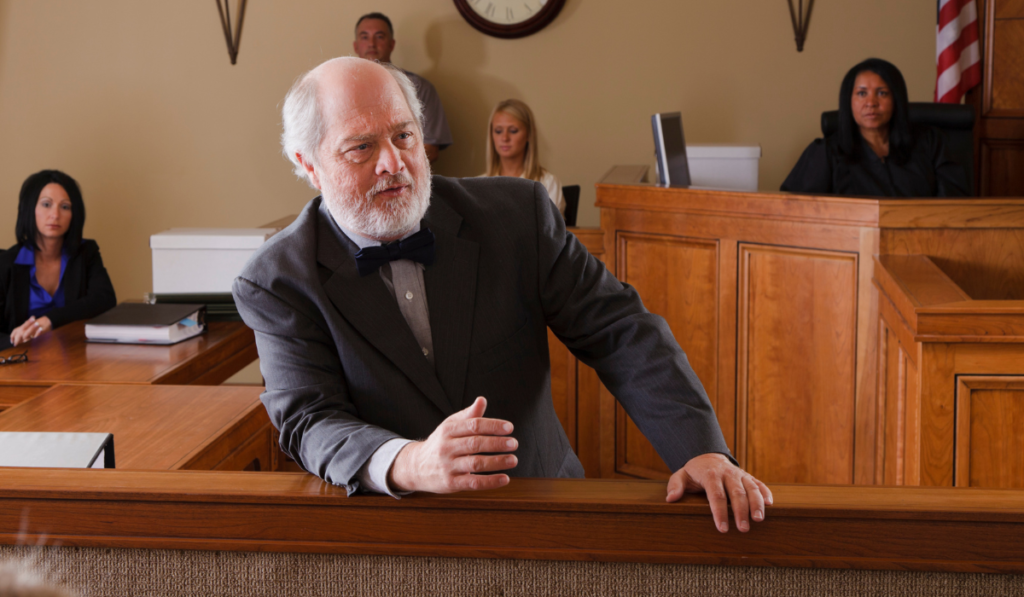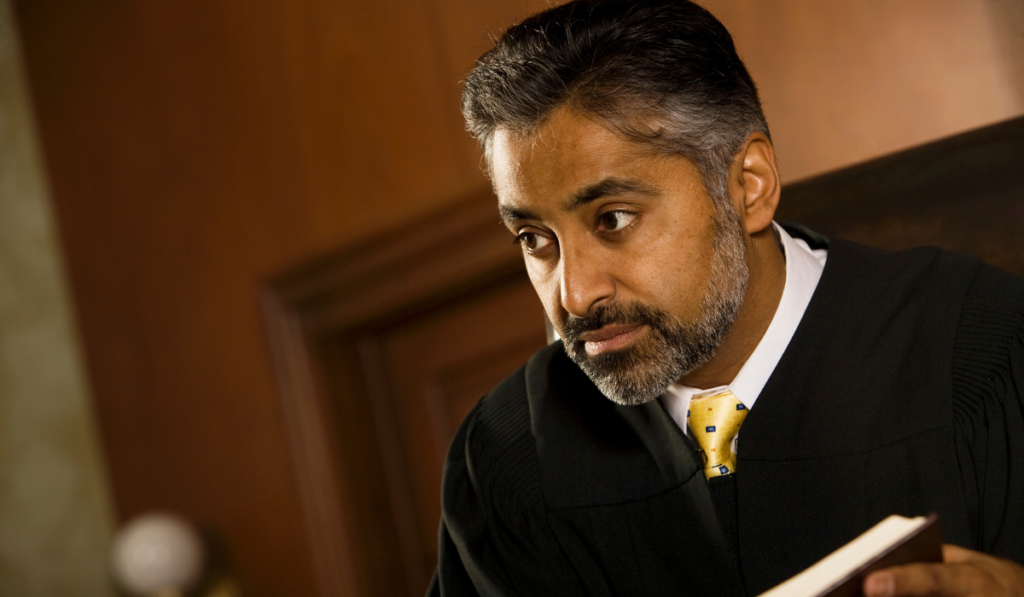Nowadays, mastering various strategies and tips for plaintiff lawyers in trial is crucial to achieving favorable outcomes for your clients. This blog post explores several key aspects of litigation strategy that can significantly enhance your trial preparation and performance.
We’ll discuss the importance of preparing clients and witnesses effectively as well as how to engage jury panels in a way that fosters rapport and understanding. Additionally, we’ll explore the benefits of visual aids such as videotape depositions as valuable evidence, alongside mediation strategies tailored specifically for plaintiff lawyers.
Plus, you’ll learn about the Ten Commandments of Opening Statements, which are guidelines designed to help craft powerful narratives while building strong connections with jurors. Finally, we’ll touch on maximizing trial efficiency through innovative tools like Plaintiff Parity.
This comprehensive guide offers indispensable insights into best practices for plaintiff lawyers in trial settings. By implementing these tactics, you can increase your chances of success while providing exceptional representation to those who rely on your expertise.
Preparing Clients and Witnesses for Trial
A crucial aspect of trial strategy is ensuring that your client and witnesses cannot be impeached on veracity. Without a doubt, ensuring that your client and expert witnesses will not be challenged on their truthfulness requires proper preparation. Plus, making sure they comprehend their part in the trial also demonstrates respect for them, helps to establish credibility with them, and prevents surprises during cross examination.
Here are some effective methods for preparing your clients and witnesses for trial:
- Client Education: Educate your clients about the litigation process, including what to expect from opposing counsel and how best to present themselves in court.
- Maintaining Honesty: Encourage clients and witnesses to always tell the truth while testifying. This will make it difficult for a defense attorney to discredit their testimony.
- Presentation Skills: Teach clients effective communication techniques such as maintaining eye contact with jurors, speaking clearly, using appropriate body language, etc., which can enhance their overall presentation during trial proceedings (source).
Getting litigants and witnesses ready for court is a crucial element in litigation, as it can be the determining factor between success or failure. Furthermore, engaging jury panels effectively requires an understanding of their expectations, values, and biases to ensure your argument resonates with them.
Related: Enhancing Outcomes: Plaintiff Support Services for Lawyers

Engaging Jury Panels Effectively
When making your jury argument, it’s recommended to fully open up to get the jury panel talking and engaged in the discussion on your particular case. Encouraging active participation from jurors can help you gauge their opinions on key issues while fostering a sense of camaraderie among panel members.
To achieve this, implementing the following strategies goes a long way:
- Create an open dialogue: Start by asking open-ended simple questions that encourage jurors to share their thoughts and experiences.
- Show genuine interest: It’s always a good idea to pay close attention to each juror’s response and ask follow-up questions when appropriate.
- Avoid leading questions: Instead of trying to guide jurors towards specific answers, allow them to express their own opinions freely.
By following these steps, you can both identify any potential biases and create a positive relationship with the jury during selection, thereby increasing your chances of success at trial. As trial lawyers, it’s important to have effective litigation strategies and trial preparation to ensure that you’re well-equipped to handle any challenges that could arise during the trial. This includes being prepared to face opposing counsel and defense counsel.
Of course, when facing an opposing lawyer, it’s important to remain professional and respectful. So, try to avoid getting into arguments or becoming confrontational, as this can negatively impact your case. Instead, focus on presenting your case in a clear and concise manner, using evidence and legal arguments to support your position.
During trial preparation, it’s also crucial to carefully consider jury selection. This process can have a significant impact on the outcome of your case, as the jury will ultimately be responsible for the final decision. Therefore, taking the time to carefully review potential jurors and consider their backgrounds, experiences, and potential biases can be vital. This will help you select a jury that is more likely to be sympathetic to your case.
By engaging jury panels effectively, plaintiff lawyers can ensure their arguments are heard and understood. Moreover, videotaping depositions is the best way to capture evidence that may be used in court, as it provides an accurate record of events for review.
Videotaping Depositions as Valuable Evidence
One useful tip for trial lawyers is to videotape all depositions. This can serve as valuable evidence during trial proceedings. In short, video recordings provide an accurate account of the testimony of other witnesses that may reveal inconsistencies or weaknesses in opposing attorney’s arguments when played back at trial.
Let’s delve further into the reasons why recorded depositions are considered valuable evidence:
- Preserving Testimony: Videotaped depositions help preserve the testimony of key witnesses, ensuring their statements are accurately represented in court.
- Detecting Inconsistencies: By comparing video footage with written transcripts, you can identify prior inconsistent statements and use them to challenge the credibility of a defense expert’s case.
- Juror Engagement: Videos tend to be more engaging than reading from a transcript, thereby helping jurors better understand and retain crucial information presented by witnesses.
Incorporating videotaped depositions into your trial strategies not only strengthens your case, but it also keeps the jury engaged throughout the process. As trial lawyers, it’s important to consider all litigation strategies, including jury selection, to ensure a successful outcome against a defendant’s lawyer.
Moreover, mediation strategies are also an important part of any successful case. So, understanding how to select skilled mediators and communicate effectively with the opposing side is key.
Related: Trial Lawyers Associations: Key Benefits and Resources

The Ten Commandments of Opening Statements
The Ten Commandments of Opening Statements are a set of guidelines often followed by attorneys when delivering their opening statement in court. Here they are:
1. In the first place, be brief and concise.
2. Be clear and organized.
3. State the case theme or theory.
4. Engage the jury with a compelling introduction.
5. Outline the evidence to be presented.
6. Tell a story that resonates with the jury.
7. Create a favorable impression that outs your client in a better position.
8. Anticipate and address potential weaknesses.
9. Establish credibility and trust with the jury by stating facts of your case.
10. Use persuasive language and visuals effectively.
These commandments are one of the important things in crafting effective and impactful opening statements. Indeed, this guideline helps attorneys present their case to the jury in a clear, engaging, and persuasive manner.
Maximizing Trial Efficiency for Plaintiff Lawyers
As a plaintiff lawyer, it’s essential to balance aggression with strategic thinking. One way to achieve this is by maximizing trial efficiency. Key strategies include:
- Pushing for an early trial date: By requesting the earliest possible trial date, you can keep opposing attorneys on their toes and maintain momentum in your case.
- Conducting targeted depositions: Focusing on key witnesses and forcing defendants to confront “smoking gun” documents head-on can help you use resources effectively while getting your cases to trial quickly.
Incorporating these tactics in the trial court will not only save time, but also ensure that you remain well-prepared throughout the entire process. Above all, it’s important to carefully consider jury selection and to be aware of the tactics that defense counsel may use to sway the jury. Thus, by staying vigilant and proactive, you can increase your chances of success in the courtroom.
To maximize trial efficiency for plaintiff lawyers, it’s also important to leverage available technology and tools such as the Plaintiff Parity software. By doing so, attorneys can save time and focus on more pressing legal requirements in their cases. In other words, leveraging this powerful document review tool allows attorneys to streamline their workflows and make informed decisions quickly during trials.
Leveraging Plaintiff Parity Software in Trials
Plaintiff Parity is an incredible resource for trial lawyers looking to streamline their practice. Overall, this software offers valuable tools such as case management features, document organization capabilities, and analytics that help optimize strategies throughout the litigation process.
By utilizing this innovative platform, plaintiff lawyers can enhance their efficiency during trials while ensuring they remain well-prepared at all times.
Some distinguishing features of Plaintiff Parity include:
- Advanced search: Quickly locate relevant documents with powerful search functionality.
- Blank/duplicate detection: Eliminate redundancies and save time by identifying duplicate or blank pages within your files.
- Automated OCR: Convert scanned images into searchable text for easy access and review.
- Sharing & security: Collaborate securely with team members while protecting important information from unauthorized access.
Click here to learn more about how Plaintiff Parity can revolutionize your trial preparation process.
Related: Discover the Best Law Firm Software for Trial Lawyers

Strategies and Tips for Plaintiff Lawyers in Trial
As a plaintiff lawyer, your goal is to win your client’s case, provide sound legal advice, and achieve justice. To do so, you need to be well-prepared and have a solid litigation strategy.
Here are some tips to help you succeed in trial:
1. Thorough Trial Preparation
Effective trial preparation is truly the key to winning a case. This includes gathering strong evidence, selecting persuasive witnesses, developing compelling arguments, anticipating opposing side’s tactics, and presenting your case clearly and convincingly. Similarly, it’s vital to review and understand the relevant laws and local rules that apply to your case.
2. Jury Selection
Jury selection is a critical part of trial strategy. Of course, you want to select jurors who are sympathetic to your client’s case and who’ll be receptive to your arguments. So, consider factors such as demographics, attitudes, and life experiences when selecting jurors.
3. Engaging Storytelling Techniques
Similarly, effective communication with jurors is essential to winning a case. As a result, engaging storytelling techniques can help you connect with jurors and make your case more memorable. It’s important to use vivid language, anecdotes, and examples to help jurors understand your client’s story and why they deserve justice.
4. Anticipate Opposing Counsel’s Tactics
The opposing attorney will try to poke holes in your case and discredit your witnesses. Additionally, anticipate their tactics and prepare counter arguments and evidence to refute their claims. Further, make sure to stay calm and composed during cross-examination and avoid getting defensive or emotional.
5. Maintain Professionalism
Always maintain professionalism and respect in the courtroom. In other words, be courteous to the judge, opposing lawyer, and witnesses. Also, avoid making personal attacks or using inflammatory language that could turn jurors against you and make you lose the respect of the judge.
6. Stay Active and Engaged
Stay active and engaged throughout the trial. To illustrate, take notes, ask questions about critical issues, and make objections when necessary. Finally, pay attention to the judge’s jury instructions and rulings, and be prepared to adjust your strategy if needed.
Conclusion
In conclusion, implementing these strategies and tips for plaintiff lawyers in trial can significantly impact the outcome of a case. From preparing clients and witnesses to engaging jury panels during argument, there are various techniques that can be utilized to improve success rates during a jury trial. Additionally, utilizing tools such as Plaintiff Parity can enhance the efficiency and accuracy of legal processes.
Overall, it’s crucial for plaintiff lawyers to continuously educate themselves on new methods and technologies in order to stay competitive in the field. So, by utilizing such approaches, plaintiff attorneys can increase their odds of obtaining desirable results for their clients.To experience how Plaintiff Parity can benefit your practice and streamline your legal processes, click here to start your 1-month free trial!

